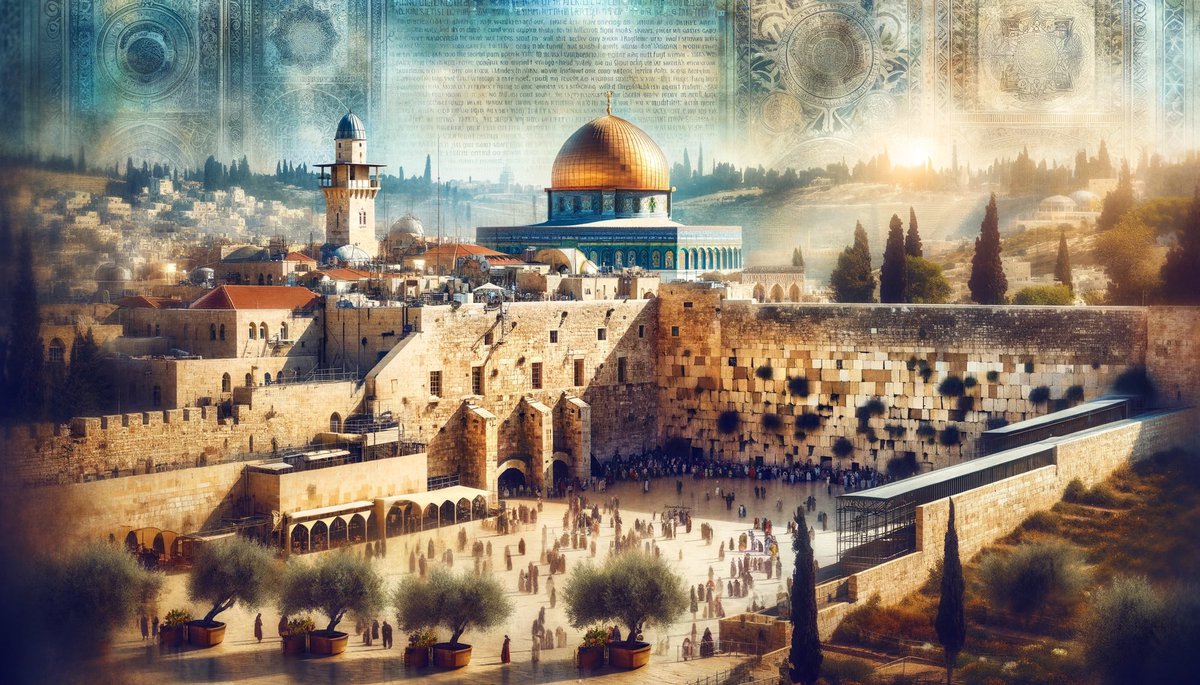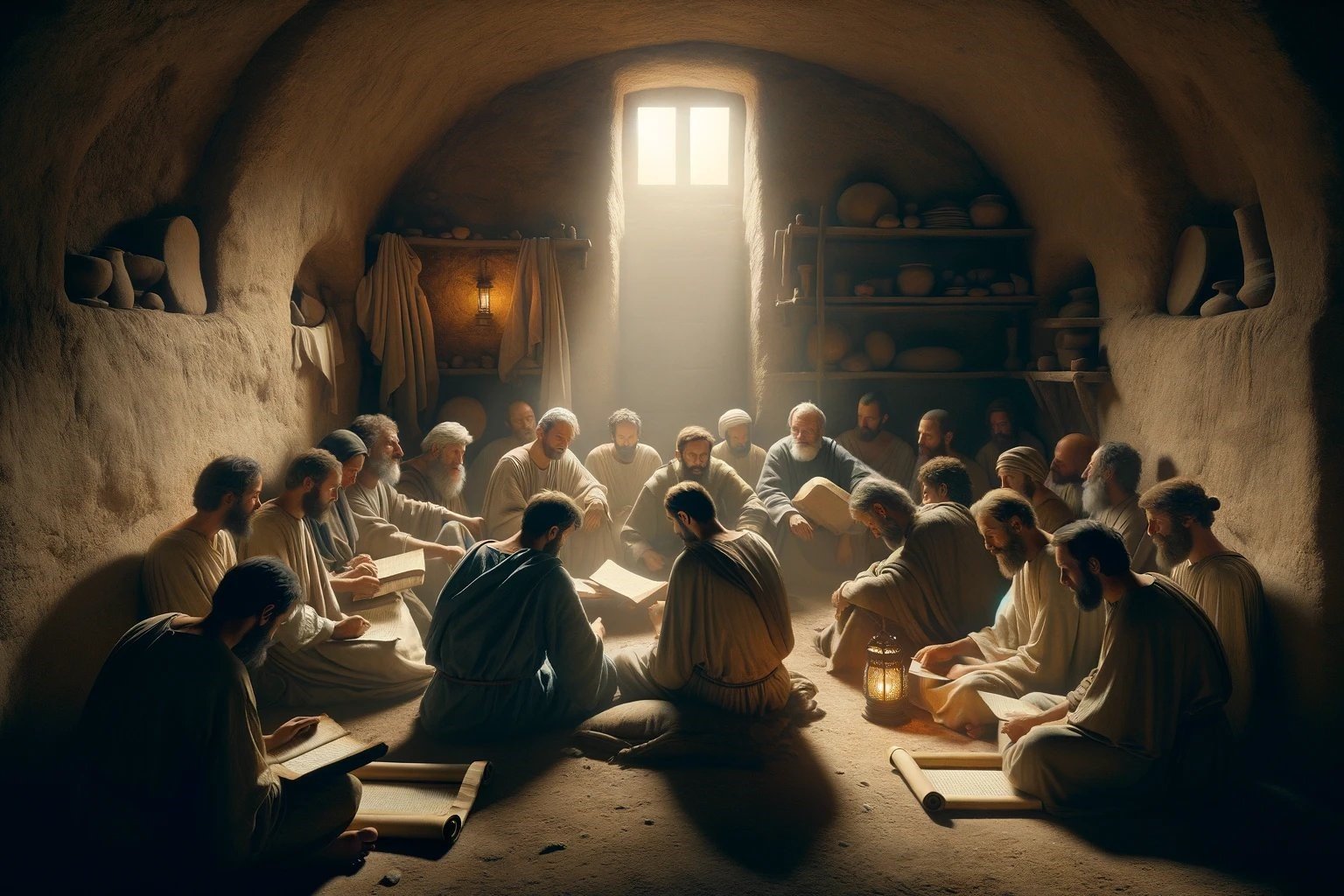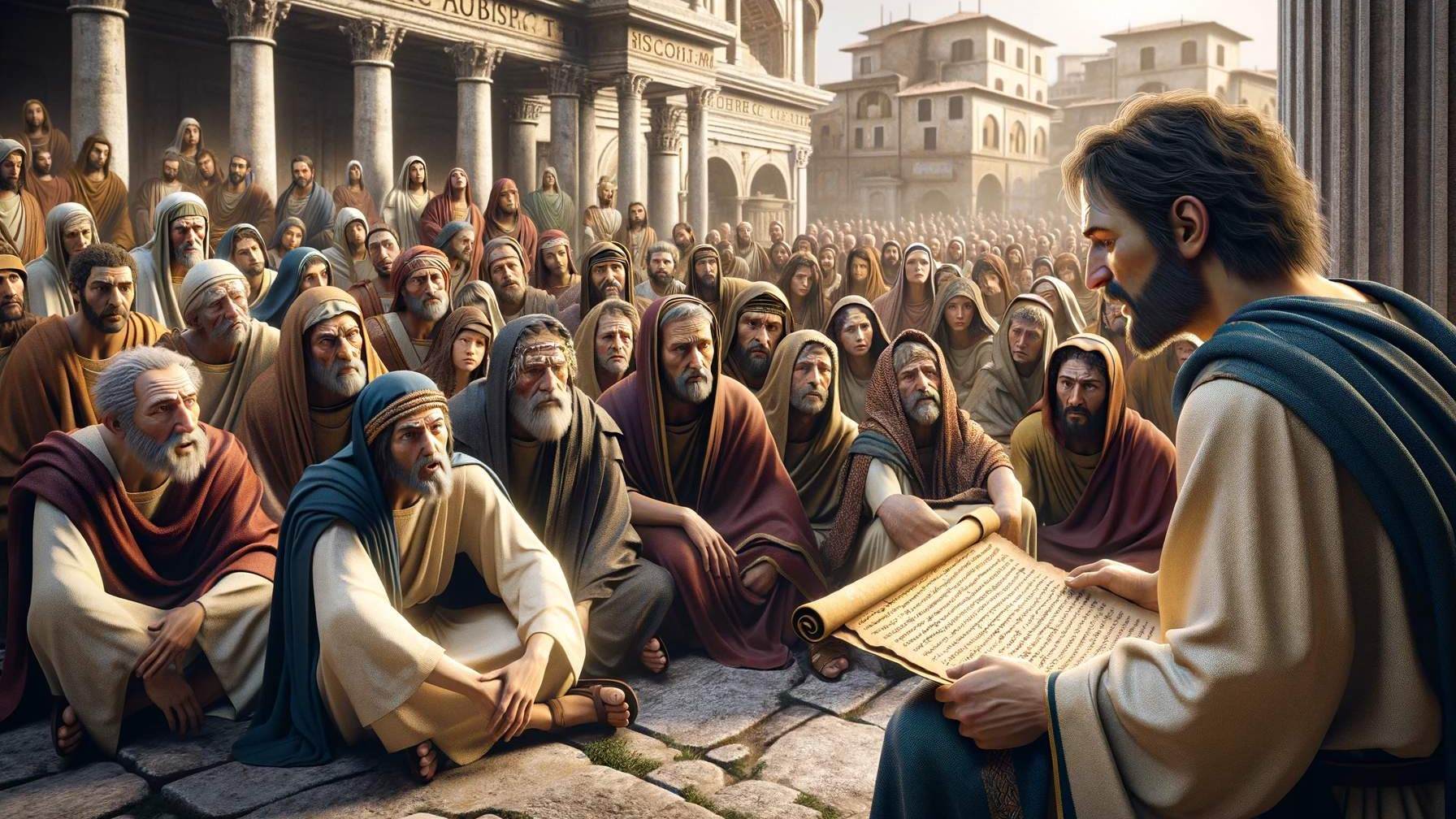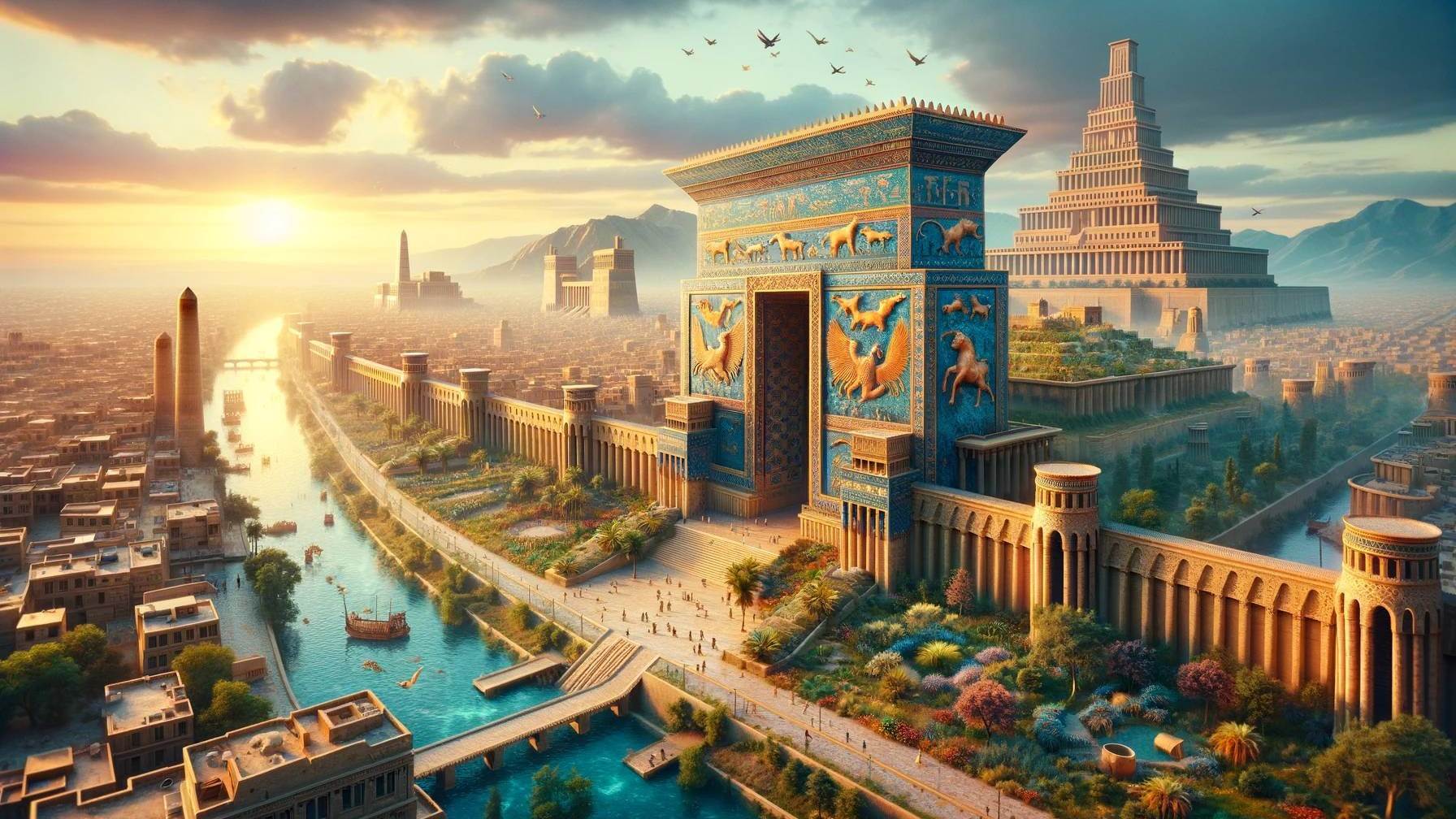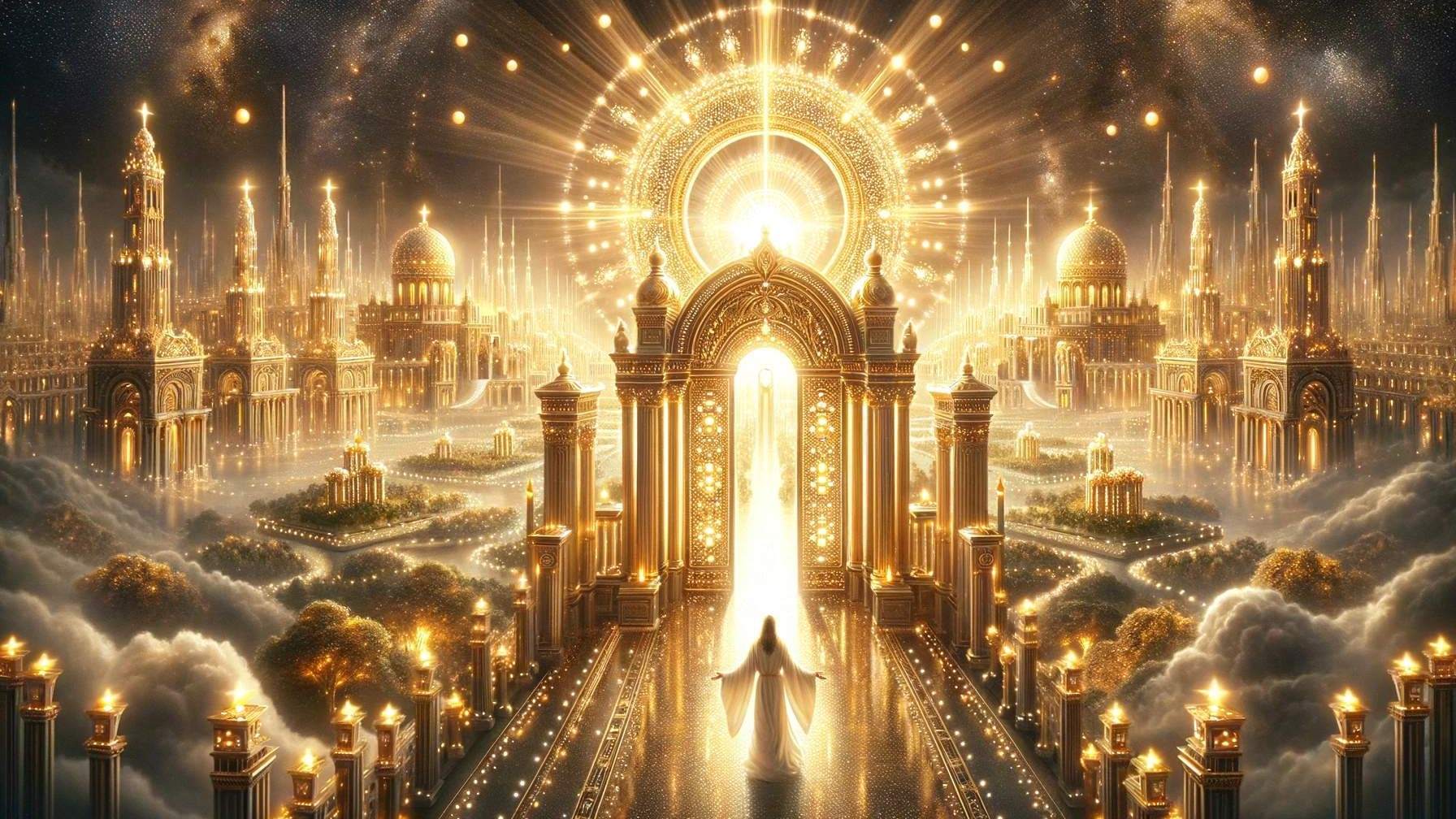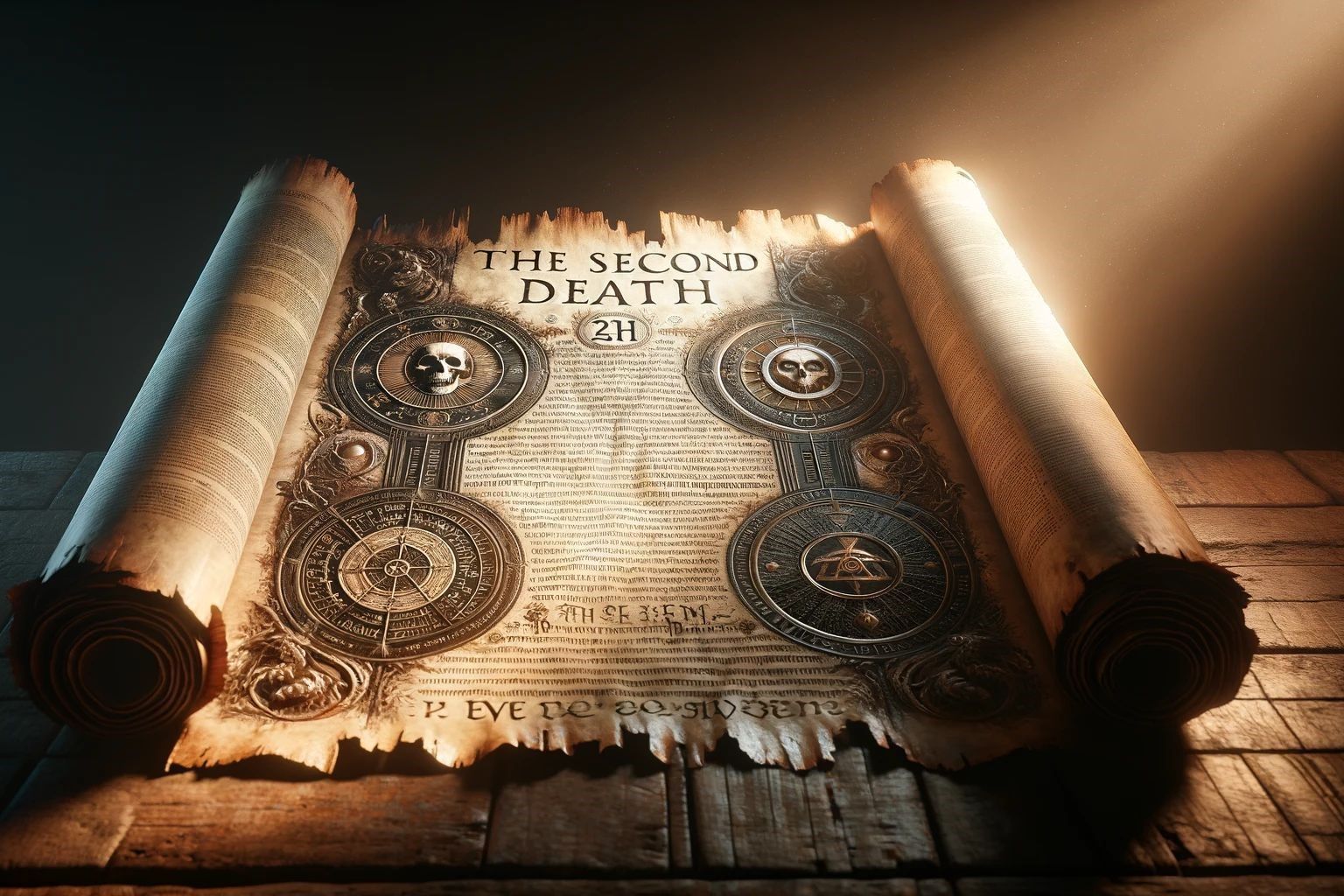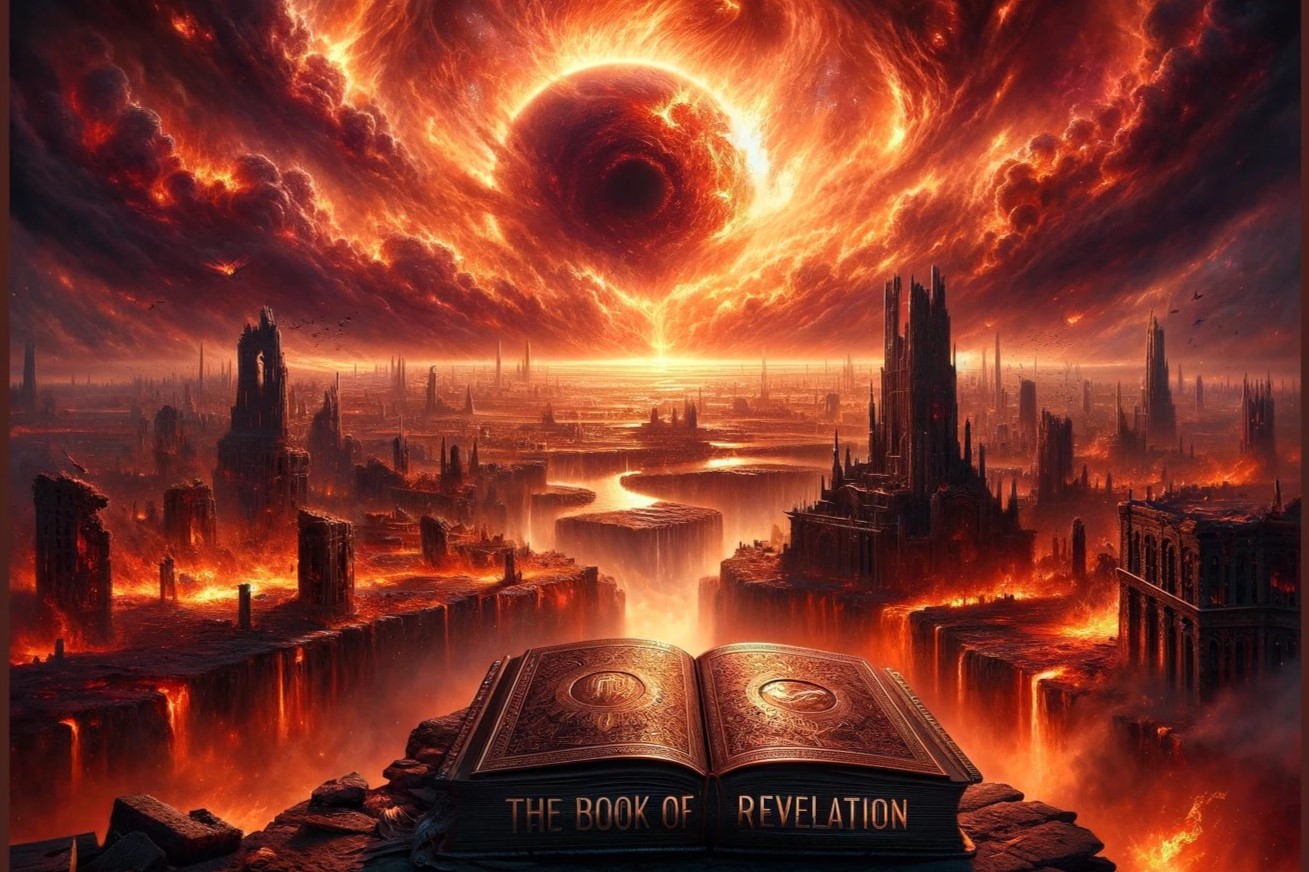Home>Bible Facts>Where Are We Today In The Book Of Revelation


Bible Facts
Where Are We Today In The Book Of Revelation
Published: February 11, 2024
Ericka Andersen, an editor at Christian.net, expertly merges digital strategy with content creation, focusing on faith and societal issues. Her communication skills enhance the platform's engaging narratives, fostering meaningful dialogue on belief's impact on society.
Discover fascinating Bible facts and insights as we explore the Book of Revelation. Gain a deeper understanding of where we stand today in this powerful and prophetic book. Uncover the truth and significance of the scriptures.
(Many of the links in this article redirect to a specific reviewed product. Your purchase of these products through affiliate links helps to generate commission for Christian.net, at no extra cost. Learn more)
Table of Contents
Introduction
The Book of Revelation, the final book of the New Testament, is a captivating and enigmatic piece of literature that has intrigued and perplexed readers for centuries. Its vivid imagery, symbolic language, and prophetic messages have sparked countless debates and interpretations. As we delve into the depths of this profound text, we embark on a journey through apocalyptic visions, divine revelations, and timeless truths.
The Book of Revelation, also known as the Apocalypse of John, is believed to have been written by the apostle John while he was exiled on the island of Patmos. Its composition is shrouded in mystery, and its authorship has been a subject of scholarly inquiry and speculation. The book opens with a powerful proclamation: "The revelation of Jesus Christ, which God gave him to show his servants what must soon take place" (Revelation 1:1, NIV). This sets the stage for a series of prophetic visions that unfold with dramatic intensity.
Revelation is a multifaceted tapestry that weaves together elements of prophecy, history, theology, and eschatology. It offers a glimpse into the cosmic conflict between good and evil, the ultimate triumph of righteousness, and the consummation of God's redemptive plan for humanity. The imagery of the book is rich and evocative, depicting celestial wonders, heavenly beings, and cataclysmic events that herald the culmination of human history.
As we embark on an exploration of the Book of Revelation, we are confronted with profound questions about the nature of reality, the destiny of humanity, and the sovereignty of God. Its themes resonate with timeless significance, addressing the enduring human longing for justice, redemption, and the fulfillment of divine promises.
In the pages of Revelation, we encounter the majestic figure of Jesus Christ, the Lamb who was slain and yet reigns as the victorious King of kings and Lord of lords. The book unfolds a vision of the new heaven and the new earth, where God's dwelling is with humanity, and all things are made new.
Join me as we embark on a journey through the apocalyptic landscape of Revelation, seeking to unravel its mysteries and glean insights that resonate with our lives today. Let us peer into the depths of this prophetic masterpiece and discern its relevance to our contemporary world.
The Historical Context of the Book of Revelation
The Book of Revelation was written during a tumultuous period in the history of the early Christian church. It was a time of intense persecution and political upheaval, as the Roman Empire exerted its dominance over the known world. The emperor at the time, Domitian, demanded absolute allegiance and even declared himself to be divine, leading to widespread idolatry and the persecution of those who refused to worship him.
In this hostile environment, the followers of Jesus faced severe trials and tribulations. The Roman authorities sought to suppress the spread of Christianity, viewing it as a threat to their power and the established order. The apostle John, exiled to the island of Patmos for his faith, received the visions that would become the Book of Revelation during this period of intense persecution.
The historical context of Revelation is crucial to understanding its message. The book was written to provide comfort, encouragement, and hope to the beleaguered Christian communities facing persecution. Its apocalyptic imagery and prophetic pronouncements served to reassure believers that God was sovereign over the affairs of the world, even in the midst of seemingly overwhelming opposition.
The seven churches addressed in the opening chapters of Revelation were situated in Asia Minor, a region that was a hotbed of imperial cult worship and spiritual warfare. The symbolic language and vivid imagery used in the book would have resonated deeply with these early Christians, offering them a vision of ultimate victory and vindication in the face of persecution.
The historical context of Revelation also reflects the cosmic struggle between good and evil, light and darkness, that permeated the first-century world. The Roman Empire, with its oppressive policies and idolatrous practices, represented the forces of spiritual darkness and opposition to the kingdom of God. In contrast, the book portrays Jesus Christ as the triumphant and exalted Son of Man, whose ultimate victory over evil and the powers of this age is assured.
As we consider the historical context of the Book of Revelation, we gain insight into the challenges faced by the early Christian communities and the enduring relevance of its message. The book's themes of perseverance, faithfulness, and the ultimate triumph of God's kingdom continue to resonate with believers facing adversity and persecution throughout history. The historical backdrop of Revelation serves as a poignant reminder that, despite the trials and tribulations of this world, God remains sovereign and His purposes will ultimately prevail.
The Interpretation of the Book of Revelation
The interpretation of the Book of Revelation has been a subject of intense scholarly debate and theological inquiry throughout the centuries. Its enigmatic symbolism, vivid imagery, and prophetic pronouncements have led to a wide array of interpretations, ranging from historical, symbolic, and futurist perspectives. Understanding the diverse approaches to interpreting Revelation is essential for grasping its profound message and timeless relevance.
Historical Interpretation: Some scholars advocate for a historical interpretation of Revelation, viewing its prophecies as symbolic representations of events that unfolded in the first century. They argue that the book's imagery and predictions were fulfilled in the context of the early church's struggle against persecution and the Roman Empire. This approach seeks to uncover the historical and cultural context in which Revelation was written, emphasizing its relevance to the original audience.
Symbolic Interpretation: Another prevalent approach to interpreting Revelation is the symbolic or allegorical method. Proponents of this view contend that the book's visions and symbols convey timeless spiritual truths and principles, rather than specific historical or future events. They emphasize the symbolic nature of the imagery, linking it to broader themes of cosmic conflict, spiritual warfare, and the ultimate victory of God's kingdom over the forces of evil.
Futurist Interpretation: The futurist interpretation of Revelation focuses on the book's prophecies as yet-unfulfilled events that will transpire in the future, particularly during the end times. This approach seeks to discern the precise details of eschatological events, such as the Great Tribulation, the rise of the Antichrist, and the Second Coming of Christ. Proponents of this view often engage in intricate speculation about the alignment of current world events with the prophetic scenarios outlined in Revelation.
Regardless of the interpretive approach taken, the Book of Revelation continues to captivate and challenge readers with its profound insights into the nature of divine sovereignty, the cosmic conflict between good and evil, and the ultimate triumph of God's redemptive purposes. Its enduring relevance transcends historical epochs and cultural contexts, speaking to the universal human longing for justice, hope, and the consummation of God's kingdom.
The interpretation of Revelation invites us to engage with its rich symbolism, prophetic visions, and theological themes, prompting us to wrestle with the profound mysteries it presents. As we grapple with the complexities of interpreting Revelation, we are drawn into a deeper understanding of its enduring significance and its implications for our lives today.
The Current State of the World in Relation to the Book of Revelation
In examining the current state of the world in relation to the Book of Revelation, it is essential to approach the topic with discernment and humility. The apocalyptic imagery and prophetic pronouncements found in Revelation have often led to fervent speculation and attempts to align contemporary events with its visions of the end times. However, it is crucial to navigate this terrain with caution, avoiding sensationalism and dogmatic assertions while acknowledging the enduring relevance of Revelation's themes to the human experience.
The tumultuous events and global challenges of the present era have prompted many to ponder the parallels between the state of the world today and the prophetic scenarios outlined in Revelation. From geopolitical tensions and environmental crises to technological advancements and societal upheavals, the complexities of our modern age have sparked discussions about their potential connections to the apocalyptic themes of Revelation.
The rise of global conflicts, the proliferation of nuclear weapons, and the specter of terrorism have evoked comparisons to the apocalyptic wars and geopolitical upheavals depicted in Revelation. The interconnectedness of the world through digital networks and the rapid dissemination of information have raised questions about the fulfillment of Revelation's prophecies regarding a globalized society and the dissemination of deceptive ideologies.
Moreover, the ethical dilemmas posed by advances in biotechnology, artificial intelligence, and surveillance technologies have prompted reflections on their implications for human autonomy, privacy, and the potential for societal control reminiscent of the ominous themes found in Revelation.
In the realm of spirituality and religious dynamics, the resurgence of apocalyptic movements, the quest for spiritual meaning in an increasingly secular world, and the interplay of diverse religious traditions have fueled discussions about their resonance with the spiritual and eschatological themes of Revelation.
Amidst these reflections, it is essential to approach the current state of the world in relation to the Book of Revelation with a balanced perspective. While acknowledging the profound insights and enduring relevance of Revelation's themes, it is crucial to avoid deterministic interpretations and sensationalistic prognostications. Instead, a thoughtful engagement with the timeless truths and spiritual principles embedded in Revelation can inspire a deeper awareness of the human condition, the quest for meaning and purpose, and the enduring hope for a world renewed and reconciled under the sovereignty of God.
As we navigate the complexities of the contemporary world, the Book of Revelation serves as a poignant reminder of the enduring human longing for justice, redemption, and the fulfillment of divine promises. Its prophetic visions and timeless truths continue to resonate with the human experience, inviting us to contemplate the ultimate triumph of God's kingdom and the hope for a new heaven and a new earth, where all things are made new.
Conclusion
In conclusion, the Book of Revelation stands as a timeless testament to the enduring power of hope, faith, and divine sovereignty. Its enigmatic visions and profound insights transcend the boundaries of time and culture, speaking to the universal human longing for justice, redemption, and the consummation of God's redemptive plan for humanity.
As we journeyed through the historical context, interpretation, and the current state of the world in relation to the Book of Revelation, we encountered a tapestry of apocalyptic imagery, prophetic pronouncements, and enduring themes that resonate with the human experience. The historical backdrop of persecution and political upheaval in the early Christian era provided a poignant backdrop for the book's message of perseverance, faithfulness, and the ultimate triumph of God's kingdom over the forces of darkness.
The diverse interpretive approaches to Revelation underscore its multifaceted nature, inviting readers to engage with its symbolism, theological themes, and prophetic visions in a spirit of humility and discernment. Whether viewed through a historical, symbolic, or futurist lens, the book continues to captivate and challenge readers with its profound insights into the cosmic conflict between good and evil, the sovereignty of God, and the ultimate hope for a new heaven and a new earth.
In considering the current state of the world in relation to Revelation, we are reminded of the complexities and challenges of our modern era, prompting reflections on the enduring relevance of its themes to the human experience. While avoiding sensationalism and dogmatic assertions, we are invited to contemplate the parallels between contemporary events and the timeless truths embedded in Revelation, fostering a deeper awareness of the human condition and the quest for meaning and purpose in a rapidly changing world.
Ultimately, the Book of Revelation beckons us to embrace a vision of hope, resilience, and unwavering faith in the face of adversity. Its message transcends the boundaries of time and space, offering a glimpse into the ultimate triumph of God's redemptive purposes and the promise of a new creation where sorrow, pain, and injustice will be no more.
As we conclude our exploration of the Book of Revelation, let us carry with us the enduring truths and timeless hope it embodies, inspiring us to live with faith, courage, and a steadfast belief in the ultimate fulfillment of God's redemptive plan for humanity.
